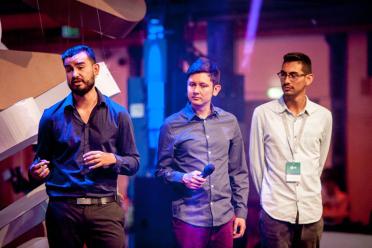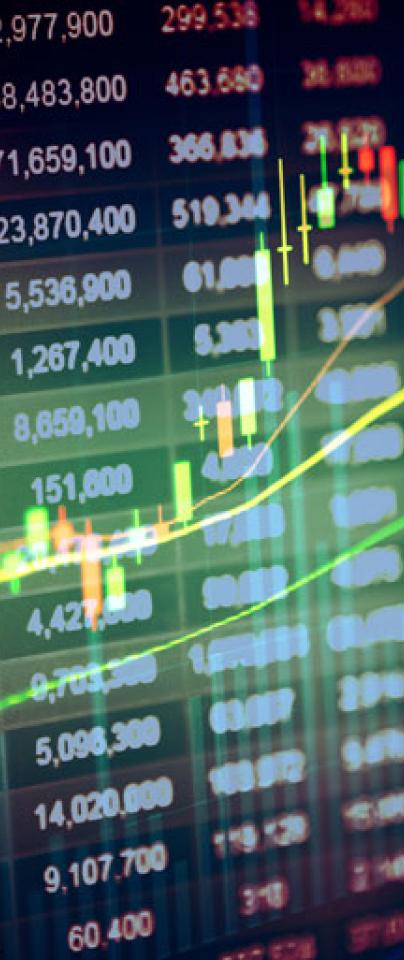Cultivando Futuro: Smart agriculture in Colombia with Darío Gonzalez
Cultivando Futuro provides an agribusiness platform to link up producers, organisations and buyers, enabling them to make better decisions based on key information.
Cultivando Futuro provides an agribusiness platform to link up producers, organisations and buyers, enabling them to make better decisions based on key information. Based in Colombia, their big data, fair trade platform is growing fast, and doing some important work in the process.
Cultivando Futuro were the receivers of $10,000 in prize money after winning the Thought for Food Challenge 2017 in Amsterdam, where they presented their big data, fair trade solution to connect the key players in the agricultural food chain.
Offering key information on what crops are being grown, when and where they are available, the wants and needs of buyers, as well as georeferencing products and more, the company is making buying, producing and management of agriculture fairer and more efficient at every stage.
This year, CEO Darío Gonzalez presented their impressive progress over the last year. In Colombia, business is booming. So, who are Cultivando Futuro, and how are they helping producers, organisations and buyers?

We have developed an information system that will transform the way smallholder farmers around the world receive key information and the services they need to achieve their full potential.
Smallholders are a major user of natural resources – such as land, soil and water. They have a great potential for job generation and carbon sequestration. They are the first line for protecting biodiversity and finally they are the sector on which global food security and nutrition depend so you can imagine the impact they have.
And we are at risk of losing them. They are going bankrupt and the new generations are leaving their farms to search for opportunities in the cities.
Our platform:
This allows us to create the right strategy for every single farmer - and to find the right partners the communities need to develop sustainably.
Every farmer, organization and wholesale buyer has a profile and they contribute to building the whole picture of the industry, allowing us to identify strengths, weaknesses and potential.
Having statistics isn’t enough to transform this industry. An industry where we trade daily but we have to work with outdated information.
Just having big data is not enough if we can not tackle each farmer’s challenges and if farmers can not communicate effectively with the institutions that support them. These are key differences our platform has compared to other information systems. We provide up-to-date data, have fluid channels of communication with farmers and can use any statistic we have to reach each individual farmer.
So, for example we have a graph that shows us the amount of productive land farmers have that is not being used. Because of this insight we know we can at least triple the production of these farmers with the right incentives. This is how we address food security effectively.
We can locate farmer associations in seconds by filtering based on state, town or product. This helps us identify communities in prioritised regions where we need to invest to preserve natural resources and biodiversity.
Through the information we have collected, we know smartphones and apps are the tools with the highest rate of adoption. This is amazing for connectivity. But we also know having a proper bathroom is nowhere near as common. However, we know exactly what families need is help with this basic infrastructure to better their sanitation. This is how we can address food production in a sustainable way, by understanding and being able to tackle the problems of each individual farmer.
We know each farmer's infrastructure, products, crop calendar, and we are even collecting information from wholesalers, to deliver the first detailed demand report. A feature without precedent in the industry.
This is the information system to understand the rural economy and deliver the best services to generate the highest impacts. It will be the backbone of every organization in the industry.


Having statistics isn’t enough to transform this industry. An industry where we trade daily but we have to work with outdated information.

On 2017 we toured around Colombia to help smallholder farmers create their first Confederation, a third level organization, composed of more than 500 farmer associations. They use our technology to be able to manage this structure and develop their strategies - a massive task that would need too much work power to be done in a traditional way.
With the information we have collected, we have started to see the relations that different actors in the industry have and we are actively helping all of them to exchange services.
We have delivery code registrations so that farmers are able to sell their produce in market chains, we have managed to deliver managerial training to the leaders of these associations and we have also found business partners to trade the produce.
But probably the biggest contribution has been to represent them on the board that drafted a law which demands that every government organization buys 10% of their food directly from smallholders.
All this has been possible due to our deep understanding of what our system generates from the communities we serve.
Over the last year we have had great achievements, but we are still on startup mode. Trying to validate as many assumptions about our technology and business as fast as we can, and heavily working on building the alliances we need to accelerate our growth.
Plus we still have to dedicate a lot of our time to fundraising to keep the team going. When you work on innovation you need to balance your expenses not only on the operation of the business, but also a lot of your capital goes to research and development.
And we feel that we haven't reached our limits in terms of innovation, so our technology is still demanding a lot of work as we make new breakthroughs every week that better the performance of our users. We are always looking for resources to evolve as fast as we can.

I would love to have a representative sample of the farmers of every country in Latin America. This would give us the most accurate information system to manage the investments of the agro sector in the entire region.
I think what we will find out is that to boost agriculture we need to invest in social and sustainability issues rather than the more technical and technological part of the industry; and we will have the data and the communities to support this, giving us the capacity to create a social transformation path for the industry based on accurate data and progress documentation, open for other players to replicate.
I think the next big trend will be that the farmers will start generating their own data, not organizations or governments.
This data will be delivered in real time, and the farming communities that will start using internet to bond and share knowledge will have instant access to all this information - making the best decisions on a daily basis to demand the right policies and investments to help them develop.

I think the next big trend will be that the farmers will start generating their own data, not organizations or governments.

Darío Gonzales, CEO Cultivando Futuro.